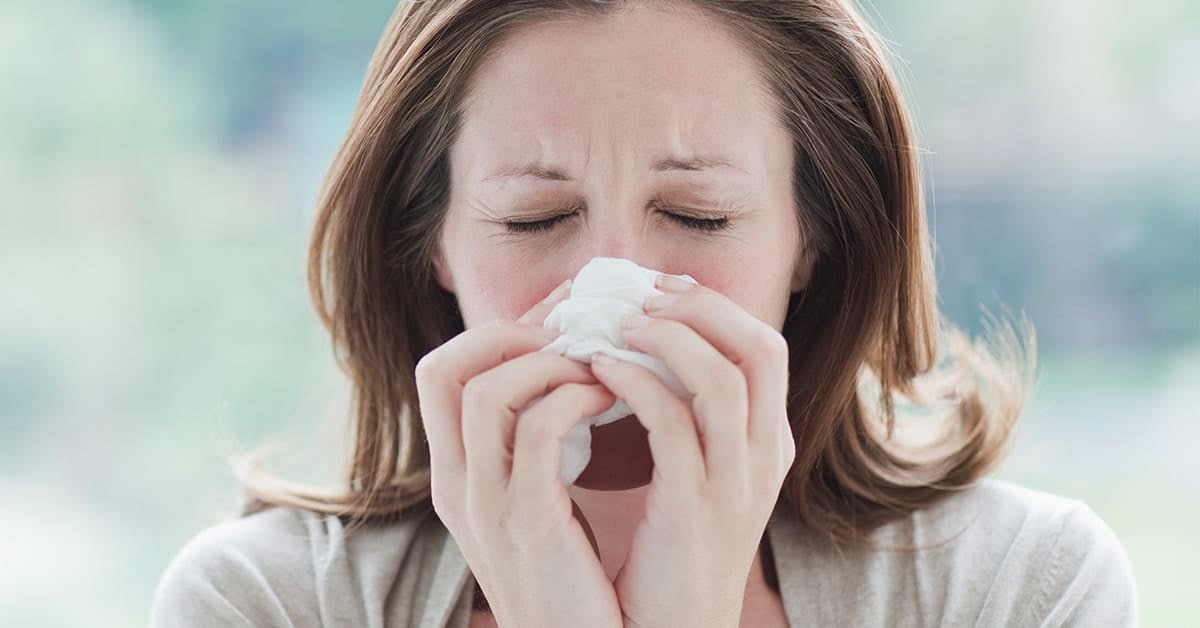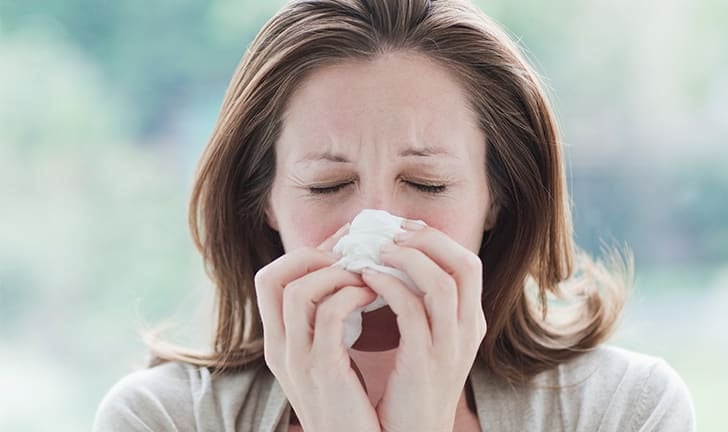14 tips to manage spring allergy season


Many Canadians countdown the days to spring especially after a long, cold winter. The days get warmer and plants of all kinds start to bloom. However, when plants bloom, they start to create pollen. If you are among the 20-30% of Canadians who suffer from seasonal allergies, you may not look forward to spring at all. Sneezing, runny nose, and itchy eyes are just some of the symptoms that can make your life miserable in springtime. We’ve compiled a list of tips and strategies to help you deal with allergies so you can enjoy the season.
Not every spring is the same
One thing to note is that not all spring allergy seasons are the same and can vary drastically from year to year. Kelly Sonnenburg, a meteorologist at The Weather Network, mentions that pollen severity depends on how quickly it gets warm and just how warm it gets. Some years allergy sufferers might start to get irritated as early as March, while other years it's not until later in April.
Springtime temperatures and pollen types vary throughout different parts of the country as well. Keeping an eye on the weather for your area can help determine when you might start to feel the effects of spring pollen. Consider using a tool like The Weather Network’s Pollen Report that tracks and forecasts pollen levels in your region.
Tips for reducing your exposure to pollen
Symptoms of seasonal allergies can be tricky to eradicate entirely. However, avoiding your exposure to pollen the best you can is a crucial step in making your life more comfortable.
- Check the weather forecast and pollen forecast before spending time outdoors. Specifically try to avoid dry, windy days or days you know the pollen levels are highest.
- Try not to engage in outdoor activities that stir up pollen like mowing the lawn and gardening.
- Keep your windows closed, it might be tempting to let the fresh spring air in, but you are inviting pollen in as well.
- Avoid going outside during certain times of the day. The Asthma and Allergy Association of America (AAFA) suggests avoiding outdoor activities between the hours of 5 to 10 a.m. and at dusk.
- When driving, keep your car’s air system on the “recirculate air” setting. For reference, this is the icon with the curved arrow inside of the car. This setting helps prevent new pollen from being pulled in.
- Shower or bathe before bed to wash away any pollen that might be attached to your hair and skin.
- Change and wash clothing you wear outside often. Wash bedding, towels and pillows more often as well.
- Make sure your home furnace filters are clean. These can help trap pollen and other allergens.
Tips for managing allergy symptoms
Spring allergies can affect different parts of your body, but luckily there are ways to manage them all.
- Try an over the counter oral allergy medication. There are several different non prescription oral allergy medications available in Canada that can help ease a variety of your symptoms. Check the boxes to see which ones might work best for you.
- For watery, itchy eyes try placing a clean face cloth soaked in freezing cold water over your closed eyes. Over the counter antihistamine eye drops can also provide relief.
- If you wear contact lenses, make sure you clean your lenses thoroughly and consider investing in lubricating eye drops. Alternatively, you may consider wearing daily lenses, or switching to glasses for a while. Discuss your symptoms with your optometrist to find the best option for your eyes.
- If you suffer from sinus symptoms in spring you might have allergic rhinitis. This condition is when you have inflammation in the nose as a result of pollen and irritants in the air. The AAFA recommends trying an over the counter nasal spray as they can reduce inflammation in the nose and prevent allergic reactions. Using a saline rinse can also help clear allergens from your sinuses.
- Generally, one of the best ways to manage your allergy symptoms is to book an appointment with a certified allergist. They can help you determine what pollen you are allergic to and devise a personalized treatment plan.
- If you have really bad symptoms, your allergist might suggest allergy shots (allergen immunotherapy) as an option. This process involves regular shots containing small amounts of the substances you are allergic to desensitize the body overtime.
Natural remedies
Unfortunately, there are few natural remedies that have been scientifically proven to work in preventing and treating seasonal allergy symptoms. One common remedy involves eating local honey as it can contain traces of local flower pollen, and could work similar to allergy shots. Although widely promoted as a way to reduce symptoms, results haven't been consistently duplicated in clinical studies. Some people claim acupuncture can help with seasonal allergies and there is some evidence that acupuncture works, according to Mayo Clinic.
In summary, spring can be a frustrating time for those experiencing seasonal allergies. However, with the right knowledge, strategies and treatment you can still find ways to enjoy the season.